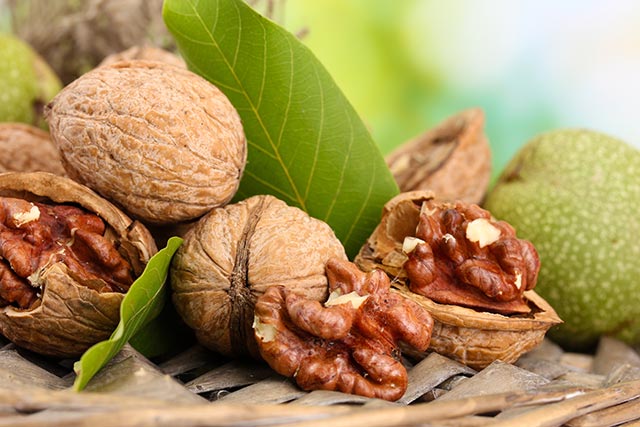Several different essential oils scientifically confirmed to combat fungal infections
09/29/2018 / By Ellaine Castillo

Normally, the polymorphic fungi Candida albicans is not harmful to the body unless certain conditions cause it to become virulent. Researchers from Southwest College of Naturopathic Medicine, Arizona State University, and Enerpathic Technologies discovered that different botanical tinctures and essential oils prevent C. albicans from progressing into its more virulent forms.
Essential oils and botanical tinctures are plant-based remedies that are often interchanged with each other. The main difference between these two lies in the process through which they are produced. Production of essential oils involves a distillation process that separates the oil from the plants. Meanwhile, tinctures are prepared by submerging the plants in alcohol for some time and then removing them. Basically, tinctures are like tea but instead of water, alcohol is used. Although they are different, both essential oils and botanical tinctures have been used against fungal infections.
In its virulent form, C. albicans can infect the mucosal membranes and squamous epithelia of the gastrointestinal tract, as well as the skin. Additionally, C. albicans can also cause blood infections known as candidaemia. This can spread to different organs, causing Candida peritonitis. The mortality rate for these blood infections is estimated to be at 50 percent, which is very troubling.
As previously mentioned, C. albicans is not normally harmful. In fact, it’s a commensal organism typically found in human flora. However, the presence of serum, environmental temperature, and pH levels can cause it to transition into it virulent forms. In its non-virulent form, C. albicans is just a single-celled yeast. It only becomes virulent and invasive in its multicellular forms, which includes round budding spores, filamentous pseudohyphae, and hyphae.
100% organic essential oil sets now available for your home and personal care, including Rosemary, Oregano, Eucalyptus, Tea Tree, Clary Sage and more, all 100% organic and laboratory tested for safety. A multitude of uses, from stress reduction to topical first aid. See the complete listing here, and help support this news site.
In this study, which was published in Herbal Medicine: Open Access, the researchers looked at the effects of different ethanol-based tinctures and essential oils on the in vitro growth and differentiation of C. albicans.
Results of the study show that tinctures work against C. albicans by preventing them from progressing into their hyphae form. Sources for these tinctures include Marsdenia condurango, black walnut (Juglans nigra), yerba mansa (Anemopsis californica), and cubeb berry (Piper cubeba). Meanwhile, essential oils can target both growth and differentiation of C. albicans. They observed that the following essential oils were most effective in treating C. albicans: thyme (Thymus vulgaris), rosemary (Rosmarinus officinalis), and lemongrass (Cymbopogon citratus).
Overall, these results show that C. albicans infection can be treated by targeting the fungus’ growth and differentiation. In addition to this, essential oils and botanical tinctures can have different bioactive compounds even if they come from the same source, which can lead to different activities against C. albicans. These prove that botanical tinctures and essential oils are effective natural treatments against fungal infections. (Related: How to treat fungal and yeast infections naturally.)
Uses for essential oils
Aside from their use as a treatment for fungal infections, essential oils can also be used as:
- Bug repellent – Commercially available bug repellents contain N,N-Diethyl-3methylbenzamide (DEET), which has been shown to damage the central nervous system. To repel bugs and avoid exposure to this chemical, essential oils can be used as substitute bug repellents. Some oils that have been proven to prevent insect bites include lavender, peppermint, tea tree, lemongrass, and thyme.
- Cleaning products – Essential oils are commonly used for cleaning because of their antimicrobial properties and great aroma. In addition to these, essential oils derived from citrus fruits can break down grease and grime. Before using essential oils for cleaning make sure to dilute them in water, carrier oil, or cleaning product first so that the oils won’t be too strong.
- Brain booster – The aroma of essential oils, such as rosemary and peppermint can stimulate the brain. Peppermint works by improving alertness while rosemary promotes mental clarity, focus, and helps overcome fatigue.
Learn more about how different essential oils can treat fungal infections by visiting EssentialOils.news today.
Sources include:
Tagged Under: alternative treatment, botanical tinctures, candida albicans, Candidiasis, essential oils, ethanol-based tincture, fungal infection, Fungi, infection, natural cures, natural medicine, natural remedies, plant-based remedy, remedies, tinctures




















